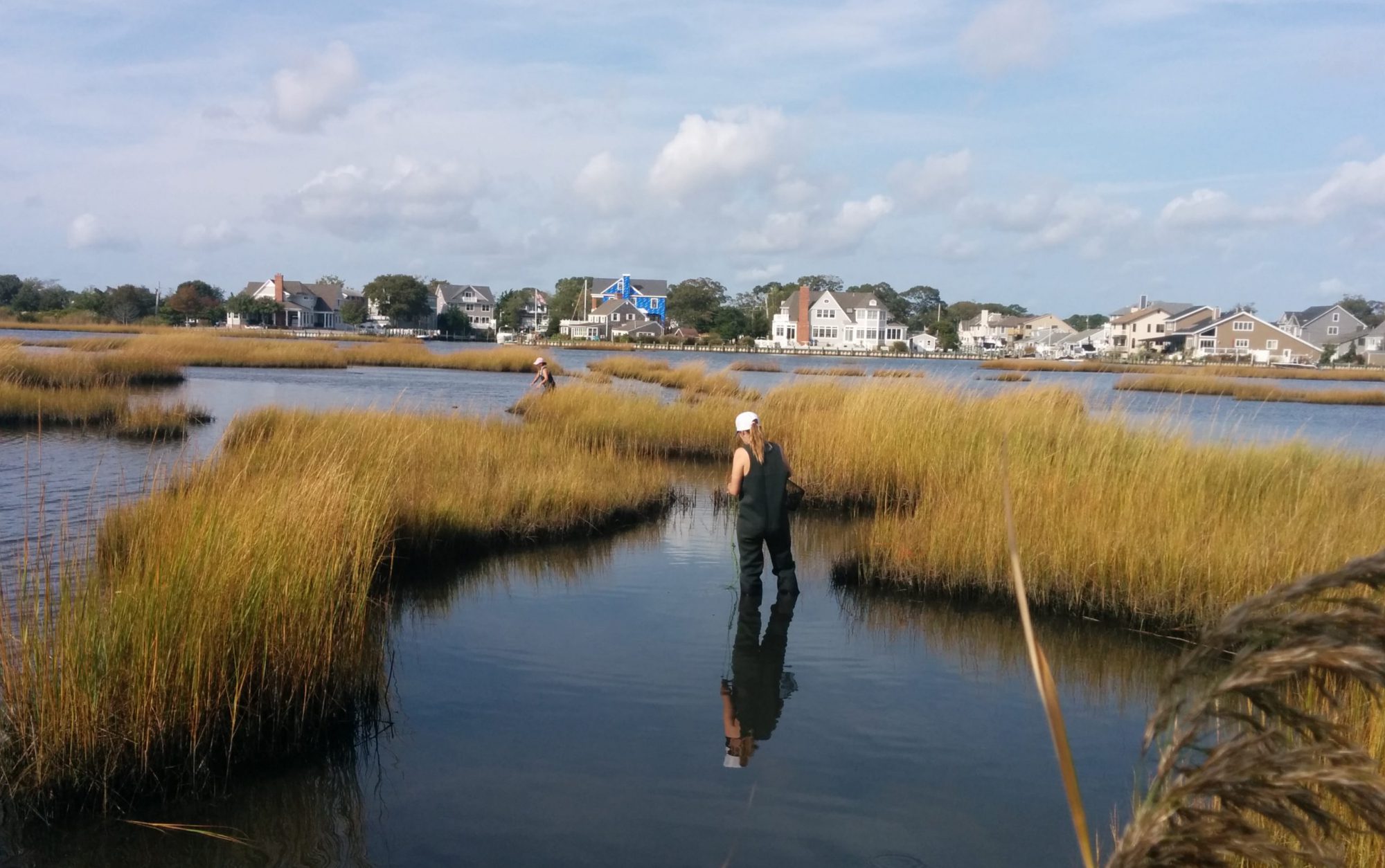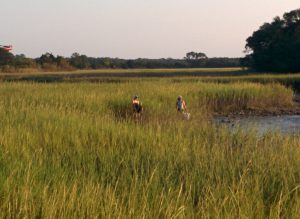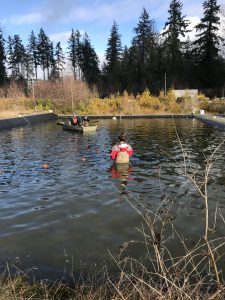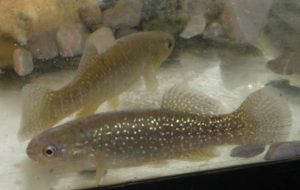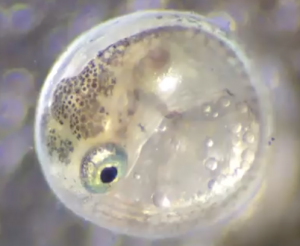The research in our laboratory is integrative, using approaches including physiology, genomics, and population genetics to understand the physiological adaptations that allow animals to live in particular environments. Click on the links below to find out more about current projects in the lab.
Common killifish (Fundulus heteroclitus) are found in estuaries and shallow water environments along the East Coast of Canada and the United States. There is a steep thermal gradient along this coast such that populations in Nova Scotia experience environmental temperatures that are more than 10°C lower, on average, than those experienced by populations in Florida. Associated with these thermal differences, there are differences in behaviour, morphology and physiology among these populations which are consistent with adaptation to their local habitat temperatures. Our experiments are designed to investigate the role of changes in gene expression in altering the thermal optima and preferences of fish from different populations, and to understand the mechanistic basis of these differences. We use a combination of population genetics, molecular physiology, and biochemistry to address these questions.
Rainbow Trout (including both freshwater resident Rainbow Trout and anadromous Steelhead Trout) are a cornerstone of recreational fishing in British Columbia, but climate change and human impacts have the potential to threaten this economically and culturally important resource. Already rivers in BC and Alberta are sometimes closed in summer to recreational fishing because of high water temperatures, and other environmental changes such as decreases in oxygen as a result of climate change.
We are leading an interdisciplinary team using conservation genomics to provide the tools, information, and policy recommendations needed to sustain the Rainbow Trout recreational fishery. We are sequencing the genomes of Rainbow Trout from different populations across the species range to assess their genetic diversity, and the relationship of this genetic variation to environmental variation. We are using a combination of conservation physiology and genomics to identify appropriate strains of fish for stocking that will be resilient to the effects of climate change. We are also using genomic approaches to develop low-cost tools that fisheries managers can use to monitor the genetic health of Rainbow Trout populations.
By identifying strains of Rainbow Trout that are resilient to stressors due to climate change and other human impacts, and by giving fisheries-managers tools to monitor Rainbow trout populations, our team’s work will help preserve recreational fishing for generations to come.
Fishes are particularly sensitive to environmental perturbations such as changes in temperature during their earliest life stages, but (in contrast to the vast volume of literature on the tolerance of adult organisms) remarkably little is known about the mechanisms underlying the effects of temperature during early development in fishes.
We are examining how changes in temperature affect development in populations of Atlantic killifish from different thermal environments to identify genes involved in establishing the thermal tolerance and performance of developing fish embryos.
We are also examining the long-lasting impacts of these early exposures on the phenotypes of adult animals by looking at the epigenetic effects of early thermal exposures.
